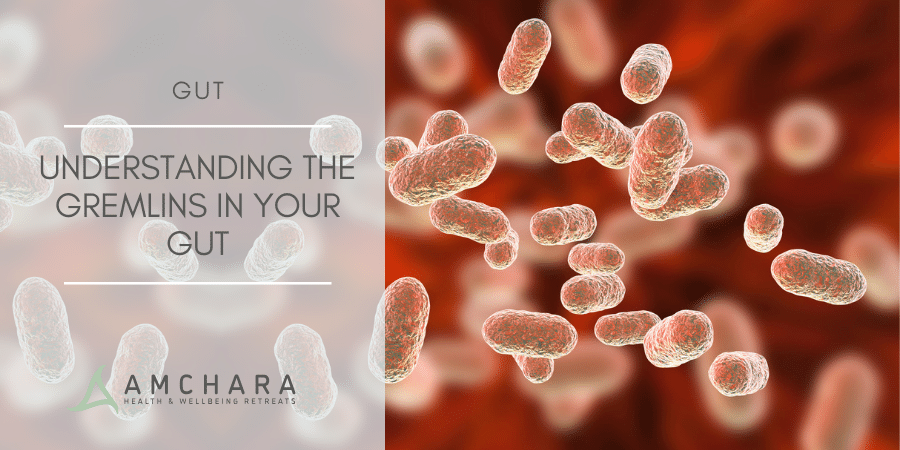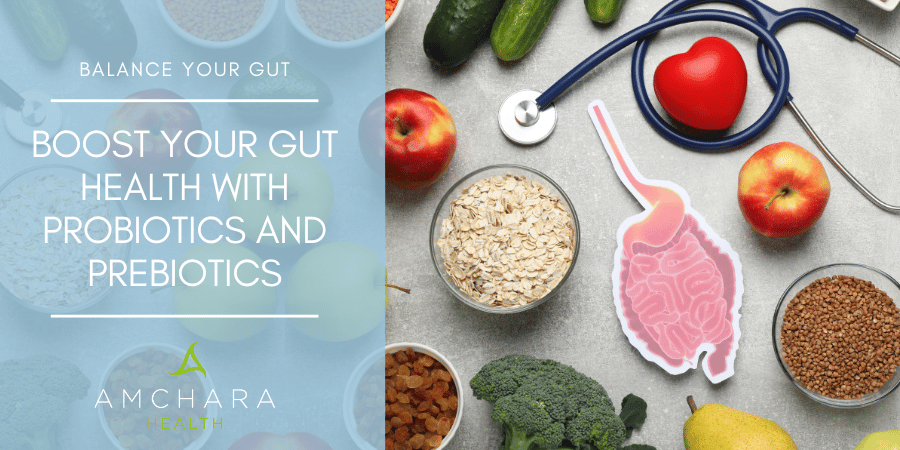By definition, live bacteria, otherwise known as probiotics, are living microorganisms that can alter your internal micro flora and exert specific health benefits without increasing the risk of antibiotic resistance.
The human gastrointestinal system is the natural habitat for a large and dynamic bacterial community, which is colonised from birth when we begin to develop a highly complex ecosystem of micro-organisms.
Babies are born with a sterile intestinal tract but rapidly acquire microbiota.
Microbiota refers to the entire community of micro-organisms that colonize the gut; not just bacteria, but also other microbes such as fungi, viruses and protozoans.
These microbiota have many major functions some of which are still relatively unknown.
The establishment of the gut microbial population is a rather complex process influenced not just by the mother but also by environmental factors such as hospitalisation, hygienic conditions and antimicrobial procedures.
It is now believed that these external influences post delivery are more important in gut colonisation than breast-feeding.
The gut flora comprises an amazing 95% of the total number of cells in our bodies (100,000 billion organisms) – it’s not surprising that there’s a lot we still don’t know about what goes on in this vast microbial ecosystem.
What we do know is that the gut micro flora has a profound influence on our health at multiple levels.
It can be affected by a variety of factors including stress, medication, genetics, age and nutrition.
Is your microbiome out of order? Book a Free Gut Health Consultation Today
With an overwhelming amount of information available it can be hard to find health advice that you can trust. We always take an evidence-based approach and aim to provide you with actionable knowledge and tips to help you on your journey to optimal health.
Let’s take a closer look into what we know about the gut microbiota and how it impacts our health.
Role of a normal gut microbiota
From an immunological perspective, microorganisms are viewed as pathogens by your own immune system, which recognises and eliminates them.
However, the majority of bacteria that resides in your gut are non-pathogenic and happily live alongside your own cells in a mutually beneficial relationship.
Your immune system has evolved to co-exist with the healthy bacteria while it continues to fight of invading pathogens.
Functional aspects of the gut microbiota include:
- Enhancing digestive function through enzyme activity.
- Maintaining pH balance of the intestines
- lactase production
- Breakdown of bacterial toxins
- Helping to normalise serum cholesterol and triglycerides
Live bacteria are able to convert cholesterol into a less absorbable form leading to reduced absorption of cholesterol from the gastrointestinal tract and therefore a fall in serum cholesterol levels.
- Mineral absorption
- Bio transforms plant polysaccharides
- Stimulates immune function
- Synthesises vitamins
Bifidobacteria can produce a range of vitamins including folic acid, vitamin B1, B6, B12, and vitamin K, as well as a variety of amino acids.
- Releases plant polyphenols
- Produces short chain fatty acids
- Detoxifies many substances
- Regulates bowel movements
- Produces natural antimicrobials helping to prevent growth of pathogens
Therapeutic Uses
The popularity in the use of live bacteria is growing hugely, largely due to the vast body of scientific evidence supporting its health benefits.
It is well documented that the use of antibiotics disturbs the balance of gut flora and can result in complications such as diarrhoea, gastritis and an overgrowth of Candida.
A research review carried out in 2002 revealed that administering live bacteria following antibiotic therapy could reduce the associated diarrhoea and prevent multiplication of Candida albicans.
In 2010 The American Journal of Gastroenterology reported that administering a blend of lactobacillus acidophilus and lactobacillus casei resulted in a reduced risk of antibiotic associated diarrhoea and clostridium difficile associated diarrhoea.
An earlier study by Cheng et al in 2005 demonstrated that the use of both lactobacillus acidophilus and bifidobacteria bifidum following antibiotic therapy resulted in a significant reduction of opportunistic pathogen re-growth.
Irritable Bowel Syndrome (IBS)
IBS is a common complaint where friendly bacteria are thought to exert a beneficial effect. One of the culprits for IBS is thought to be a bacterial overgrowth in the small intestines, so repopulating the gut with healthy bacteria may play a role in alleviating the symptoms.
Promising studies appear to support this theory. In particular one large-scale trial carried out in 2006 assessed the efficacy of Bifidobacterium infantis on women with IBS. Results from this research revealed a significant improvement in abdominal discomfort, wind and incomplete evacuation compared to those in the placebo group.
Inflammatory Bowel disease (IBD)
IBD such as Crohn’s and Ulcerative Colitis may also benefit from the use of friendly bacteria. Research suggests that certain pathogenic bacteria present in the GI tract may aggravate these conditions. Healthy bacteria influences the balance of the gut flora so may be helpful for IBD sufferers.
Furthermore, the yeast Saccharomyces boulardii has been identified as being effective in preventing or shortening the duration of antibiotic associated diarrhea in Crohn’s patients.
Latest Research
It seems that the gut micro flora may also be implicated in insulin sensitivity and obesity related disorders. Research is now recognising that prebiotics and friendly bacteria might have beneficial effects on glucose tolerance, post-prandial insulin release and insulin sensitivity.
A Finnish study carried out in 2009 on 256 pregnant women identified that the group who undertook nutrition counselling whilst taking Lactobacillus rhamnosus GG & Bifidobacterium lactis Bb12 had better glucose tolerance with higher insulin sensitivity than the placebo group.
The authors reported that 18% fewer women given the live bacteria had central obesity. They also had an average body fat of 28% compared to 29-30% in the placebo group.
This study provided evidence of consistently improved glucose metabolism due to combined dietary counselling and live bacteria supplementation.
Exciting new research is also proposing that manipulation of the colonic microbiota improves chronic fatigue symptoms.
In addition to this, a growing body of research is showing the health benefits of taking mixed strains of live bacteria. A study in The Journal of Gastroenterology Hepatology in 2013 found favourable results for using a multi-strain probiotic for those with IBS.
The use of Bifidobacterium longum, Bifidobacterium bifidum, Bifidobacterium lactis, Lactobacillus acidophilus, Lactobacillus rhamnosus and Streptococcus thermophilus gave substantial relief from symptoms such as pain, discomfort and bloating compared to no change in the placebo group.
This trial also highlighted the need for using live bacteria rather than functional foods such as yoghurt drinks, which a previous study had found to be ineffective.
Investigations within this innovative field have also demonstrated that probiotics offer an ability to stimulate the immune system and some have even exhibited anti-cancer effects.
Interest in the use of live bacteria within the food industry, from consumers and particularly within the scientific community is growing.
It is anticipated that further scientific investigations into this expanding area may uncover even more insights into the beneficial role of friendly bacteria.
We’re dedicated to providing you with both insightful information and evidence-based content, all orientated towards the Personalised Health approach.
Did you find this article useful? We would love to know your thoughts.
Let us know your top tips to help your gut health.
Written by: Jacqueline Newson BSc (Hons) Nutritional Therapy
Related Gut Health Stories:
- The Gremlins in Your Gut
- IBS: Could the FODMAP Diet Transform Your Life?
- Good Health Starts in the Gut
- Study: Gluten-Free Diet Influences Gut Health
- Your Gut: The Centre of Your Health
- Q: Is Your Gut In Balance?
- Connections: Leaky Gut and Grains
- Highlights: Spotlight on Digestion
- Control IBS With These 7 Foods
References
- Antoine M, Bengmark S, Enck P et al. Guidance for substantiating the evidence for beneficial effects of probiotics: Current Status and recommendations for future research. Journal Nutrition 2010: 140; 671S-676S.
- Borody TJ et al. The GI micro biome and its role in Chronic Fatigue Syndrome: a summary of bacteriotherapy. J Australasian Coll Nutr Environ Med 2012; 31 (3): 3-8.
- British Nutrition Foundation. Fact sheet. Probiotics & inflammatory bowel disease.[accessed 05.03.18.]
- Cemonini F, Caro S, Nista E C et al. Meta-analysis: the effect of probiotic administration on antibiotic-associated diarrhoea. Aliment Pharmacol. Ther. 2002;16 (8):1461-7
- Cheng L, Garaiova I, Herbison M et al. Effect of probiotics on preventing disruption of the intestinal micro flora following antibiotic therapy: A double-blind, placebo-controlled pilot study. International Immunopharmacology 2005:5; 1091-1097.
- Esposito S, Rigante D, Principi N. Do children’s upper respiratory tract infections benefit from probiotics? BMC Infectious Diseases 2014; 14:194.
- Femont M et al. High-throughput 16S rRNA gene sequencing reveals alterations of intestinal micro biota in myalgic encephalomyelitis chronic fatigue syndrome patients. Anaerobe 2013; 22:50-6.
- Gao x, Fang C, Miller L et al. Dose-Response Efficacy of a Proprietary Probiotic Formula of Lactobacillus casei LBC80R for Antibiotic-Associated Diarrhoea and Clostridium difficile-Associated Diarrhoea Prophylaxis in Adult Patients. The American Journal of Gastroenterology. 2010;11.
- Gotz V et al. Prophylaxis against ampicillin-associated diarrhoea with a lactobacillus preparation. American Journal Hospital Pharmacist. 1979; 36:754-57
- Groeger D et al. Bifidobacterium infantis 35624 modulates host inflammatory processes beyond the gut. Gut Microbes 2013, 4 (4): 325-39.
- Guarner F and Malagelada J R. Gut flora in health and disease. The Lancet. 2003: 361; 9356, 512-519.
- Isolauri E, Laitinene K, Poussa T. Probiotics and dietary counselling contribute to glucose regulation during and after pregnancy: a randomized controlled trial. British Journal Nutrition 2007; 101 (11); 1679-87.
- Jandhyala SM, Talukdar R, Subramanyam C, Vuyyuru H, Sasikala M, Reddy DN. Role of the normal gut microbiota. World Journal of Gastroenterology : WJG. 2015; 21(29):8787-8803.
- Kennedy, M J and P A Volz. Ecology of Candida albicans gut colonization inhibition of Candida adhesion, colonization and dissemination from the gastrointestinal tract by bacterial antagonism. Infect. Immun. 1985;49:654-663.
- McFarland LV et al. Prevention of beta-lactam-associated diarrhea by Saccharomyces boulardii: a prospective study. Gastroenterology 1991; 90:439-448.
- Macfarlane GT et al. Probiotics, infection and immunity [Gastrointestinal infections]. Current Opinion in Infectious Diseases 2002; 15(5):501-506
- Whorwell PJ, Altringer L, Morel et al. Efficacy of an encapsulated probiotic Bifidobacterium infantis 35624 in women with irritable bowel syndrome. Am Journal Gastroenterol. 2006:101 (7); 1581-90.
- Yoon D. Effect of multi-species probiotics on irritable bowel syndrome: a randomized , double-blind, placebo-controlled trial. J Gastroenterol Hepatol 2013.







